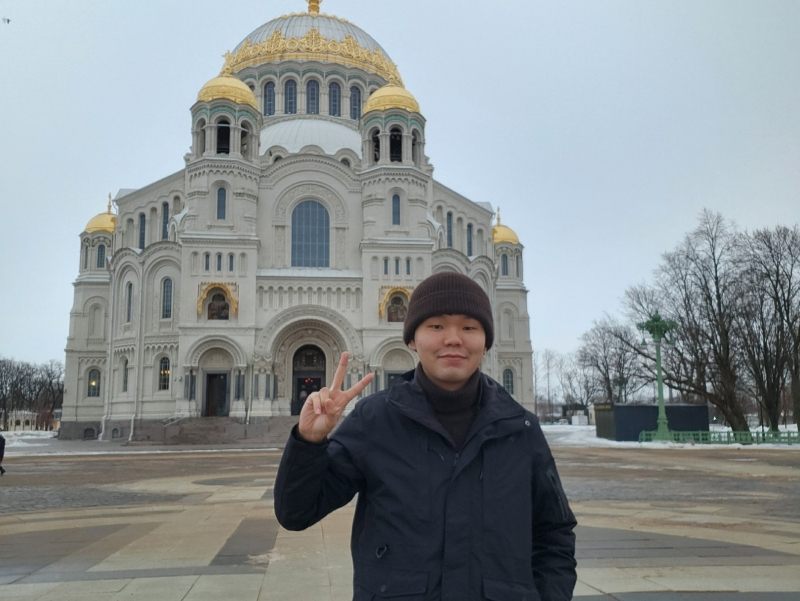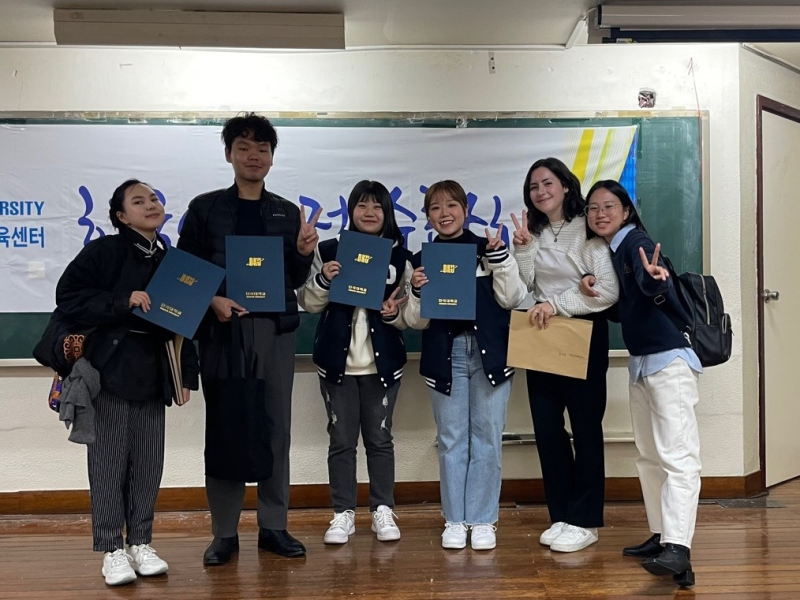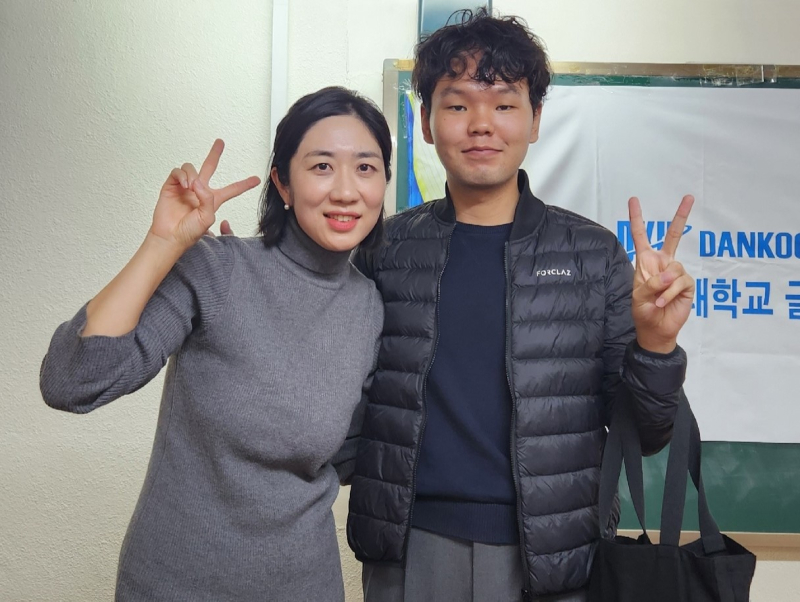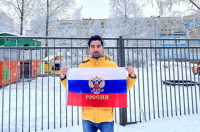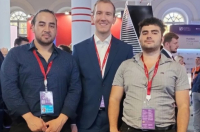Hello, thank you for joining me today.
Hey, thanks for the invite. It is my pleasure to talk to you.
Please tell us something about yourself.
I am a Mongolian, born and brought up in the capital city, Ulaanbaatar. In my opinion, my life has always been somehow connected to Russia. I went to a Russian high school, where I was introduced to the Russian language and culture. Because of it, I wanted to study in Russia right after graduating from high school, but I could not because of some personal reasons. So, I did my Bachelor’s in biotechnology at the National University of Mongolia.
What brought you to ITMO?
After my graduation, I started searching for a job in Mongolia, but I couldn’t find one that aligned with my training. There were a lot of vacancies in the food industry, but my specialization was in molecular biology and genetics. So I decided to pursue higher studies and train myself in foodtech. While searching for scholarships in Russia, I came across the Open Doors scholarship and ended up winning it. I selected ITMO as my first choice because they were offering a Master’s program in English that did not require me to go through the Foundation Program, thus saving a year. Moreover, I had a good grasp of the Russian language, so I did not need it anyway.
What got you into biotechnology in the first place?
I wanted to be a doctor, but my dream was never realized. Then, I came across the field of biotechnology. I was good at chemistry and biology in high school, so this subject seemed like a good option to me. Additionally, biotechnologists are trained in diverse areas, making them viable for numerous roles.
How has your experience of studying at ITMO been?
It has been pretty fun because, thanks to the flexible and diverse curriculum, I was able to grab so many opportunities and meet a lot of experts and professionals. Listening to their stories and challenges, I could prepare myself very well for the real world. I also went to South Korea for an exchange program, which was a truly amazing experience.
We will surely come to the exchange program, but first, tell us – what has been your favorite subject?
In the first year, we had a course in economics and finance, which I really enjoyed. The teacher was from the finance industry and he was not familiar with foodtech, but he still made the classes very interesting and relevant to foodtech students. We had group discussions and projects every day, laying emphasis on practice-oriented learning.
Do you think elective subjects are beneficial to students?
Yes, of course. At ITMO, students get trained in a variety of different subjects, and not just science. These subjects help students gain soft skills like problem-solving, business communication, and financial planning. Many students at ITMO are young entrepreneurs and it is thanks to such elective subjects.
Going back to academic mobility – tell us, how did you join the exchange program?
It was a very tough competition because almost all Russian students wanted to experience studying abroad. I had to prepare a lot of documents, including a certificate proving my English proficiency and a video CV. Being a Mongolian, I was quite familiar with Korean culture. I am also a big fan of K-dramas and K-pop. So I decided to choose this country as my study abroad destination.
How did it feel to live in South Korea?
I definitely checked one item off my wish list! I was very happy to be in South Korea. The people there are very hard-working and self-disciplined. I saw students focused on their work even in cafes and restaurants. Korean food is really spicy. Not the usual heat but a dry spice, which is very strong.
Did you enjoy your classes at Dankook University?
I couldn’t study any biotech subjects because they were all in Korean. I consulted with the professors at Dankook University and they advised me to attend basic lectures and Korean language classes. Hence, I spent four months learning Korean and observing the education system of the country.
Did you notice any differences between the Russian and Korean education systems?
Education in South Korea is very rigid. The curriculum doesn’t offer much flexibility to students and the pressure is also very high. Students have to deal with the burden of the expectations of family and teachers. In my opinion, the Russian education system is much better. It is relaxed and well-paced, with room for exploration and experimentation.
Did you pay for your travel and accommodation?
Yes, I paid for my flight tickets, visa, and dormitory. However, I was partially reimbursed by ITMO.
How did you find a dormitory in South Korea?
The migration department of Dankook University helped me with finding a good dormitory. It was a private dormitory that had many international students. I made numerous foreign friends at the dorm and had a great time with them.
Did you face any challenges while you were in South Korea?
Exchanging currency was a tough task. No one was ready to exchange rubles for the Korean won. Somehow, I found a way to manage my finances. The other challenge was with language. Few people in South Korea speak English, so it is always better to learn some Korean before traveling to the country. Thanks to my addiction to K-drama and Korean music, I was able to indulge in basic conversations with the locals.
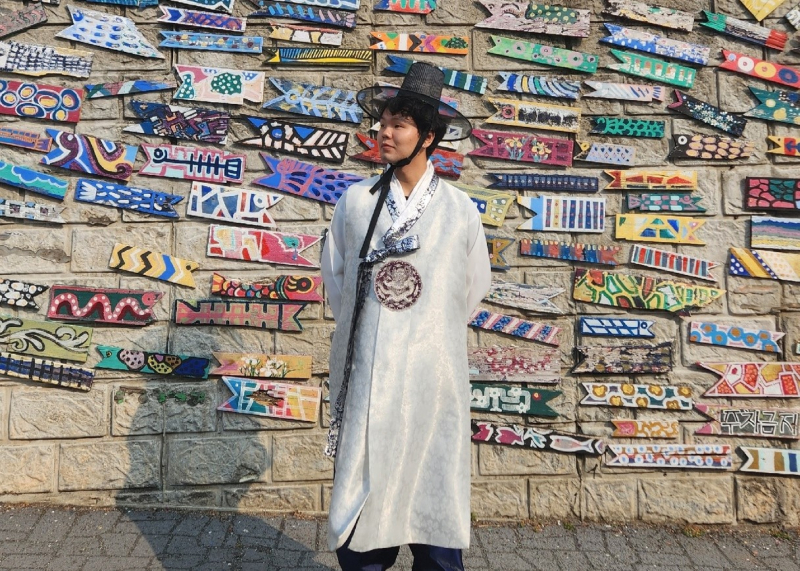
Tugsbilguun in a traditional Korean outfit in Busan. Photo courtesy of the subject
That’s really good advice. Do you have any more tips for our readers?
Studying abroad is a one-of-a-kind experience. You will not only explore a new country and culture but also discover a lot of things about yourself. You will understand who you are and what you are best at. For students in foreign countries, studying at ITMO is a great option because the education system in Russia is optimal for bringing the best out of you. Moreover, ITMO’s curricula and flexibility will help you take the next step in your life correctly and with ease!
Thanks a lot for that. Finally, what are you looking forward to after graduation?
I want to work. All my friends in Mongolia already have 2-3 years of work experience, while I have none. I believe now I need to apply all my knowledge and skills to solving real-world problems.
Will you be working in Russia or returning to Mongolia?
I haven’t made my mind up yet, but both possibilities are open to me. If I get a good job opportunity elsewhere, I might consider that as well. But as of now, returning to Mongolia seems like the most likely option, as I have already received a few job offers from there.
Congratulations! I wish you good luck in the next chapter of your life. It was a pleasure talking to you.
Thank you so much for the wonderful interview. I thoroughly enjoyed it.
